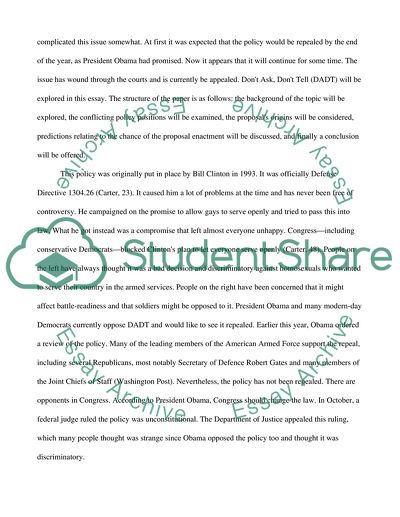Cite this document
(“Homosexuals in the U.S. military Research Paper”, n.d.)
Homosexuals in the U.S. military Research Paper. Retrieved from https://studentshare.org/sociology/1745034-political-science-repeal-dont-ask-dont-tell-in-the-us-military
Homosexuals in the U.S. military Research Paper. Retrieved from https://studentshare.org/sociology/1745034-political-science-repeal-dont-ask-dont-tell-in-the-us-military
(Homosexuals in the U.S. Military Research Paper)
Homosexuals in the U.S. Military Research Paper. https://studentshare.org/sociology/1745034-political-science-repeal-dont-ask-dont-tell-in-the-us-military.
Homosexuals in the U.S. Military Research Paper. https://studentshare.org/sociology/1745034-political-science-repeal-dont-ask-dont-tell-in-the-us-military.
“Homosexuals in the U.S. Military Research Paper”, n.d. https://studentshare.org/sociology/1745034-political-science-repeal-dont-ask-dont-tell-in-the-us-military.


